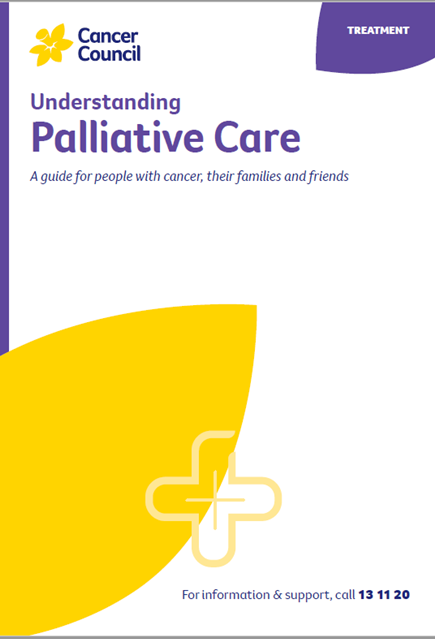- Home
- Pleural mesothelioma
- Managing symptoms
- Palliative treatment
Palliative treatment
| What is palliative treatment? | The options described here are usually considered palliative treatment because their main aim is to manage symptoms rather than cure the disease. Your doctor may suggest palliative treatment for any symptoms caused by mesothelioma or refer you to a palliative care specialist. |
| Treatments to manage symptoms | Chemotherapy, immunotherapy, radiation therapy and surgery may be used to slow the spread of mesothelioma and control symptoms such as pain or breathlessness. Oxygen and medicines (e.g. benzodiazepines) may also be used to help control symptoms. |
| Managing fluid build-up | If you have a build-up of fluid around the lungs or abdomen, various procedures can drain the fluid and help prevent it building up again. |
| When can palliative treatment be used? | Palliative treatment can be used at any stage of mesothelioma to improve quality of life. In fact, palliative treatment can help some people with mesothelioma to live fulfilling lives with minimal symptoms for longer. |
Palliative treatment is one aspect of palliative care. Read about the various ways palliative care can help.
Learn more about palliative care and living with advanced cancer.
My husband did not want to accept help from the palliative care people. He said that once they got involved he would not have much longer left to live. But his GP told him about what they do and how much they can help with symptoms and comfort. He agreed to try and now would not be without them.
GRACE
→ READ MORE: Understanding palliative care
Video: What is Palliative Care?
Watch this video to see how palliative treatment aims to manage symptoms and improve people’s quality of life without trying to cure the disease.
Podcast for people affected by advanced cancer
Listen now
More resources
All updated content has been clinically reviewed by A/Prof Anthony Linton, Medical Oncologist, Concord Cancer Centre and Concord Repatriation General Hospital, NSW; Dr Naveed Alam, Thoracic Surgeon, St Vincent’s Private Hospital Melbourne and Monash Medical Centre, VIC; Prof David Morris, Peritonectomy Surgeon, St George Hospital and UNSW, NSW. This edition is based on the previous edition, which was reviewed by the following panel: A/Prof Anthony Linton (see above); Dr Naveed Alam, (see above); Donatella Arnoldo, Consumer; Polly Baldwin, 13 11 20 Consultant, Cancer Council SA; Dr Melvin (Wee Loong) Chin, Medical Oncologist, Sir Charles Gairdner Hospital and National Centre for Asbestos Related Diseases, WA; Prof Kwun Fong, Thoracic and Sleep Physician and Director, UQ Thoracic Research Centre, The Prince Charles Hospital, and Professor of Medicine, The University of Queensland, QLD; Vicki Hamilton OAM, Consumer and CEO, Asbestos Council of Victoria/ GARDS Inc., VIC; Dr Susan Harden, Radiation Oncologist, Peter MacCallum Cancer Centre, VIC; Penny Jacomos, Social Worker, Asbestos Diseases Society of South Australia, SA; Prof Brian Le, Director, Parkville Integrated Palliative Care Service, The Royal Melbourne Hospital and Peter MacCallum Cancer Centre, VIC; Lung Cancer Support Nurses, Lung Foundation Australia; Jocelyn McLean, Mesothelioma Support Coordinator, Asbestos Diseases Research Institute, NSW; Prof David Morris (see above); Joanne Oates, Registered Occupational Therapist, Expert Witness in Dust Diseases, and Director, Evaluate, NSW; Chris Sheppard and Adam Barlow, RMB Lawyers.
View the Cancer Council NSW editorial policy.
View all publications or call 13 11 20 for free printed copies.

